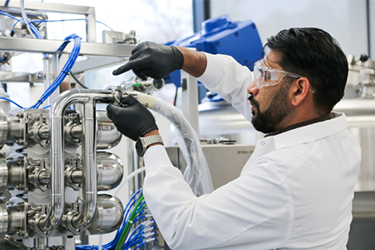Innovation And Evolution Of Affinity Chromatography Resins For Monoclonal Antibody Purification

Affinity chromatography is the backbone of monoclonal antibody (mAb) purification, but it also represents the single largest cost in the overall workflow. Innovations in resin and ligand design are continually driving down these costs while enhancing efficiency, selectivity, and yield.
Early resins had limitations in capacity, mass transfer, and stability, which drove the need for innovation. Today, advances in ligand design focus on tailoring them for enhanced specificity, improving their stability to withstand harsh cleaning, and altering their selectivity to reduce co-purifying contaminants, especially with complex, next-generation antibodies. Beyond the ligand, new resin technologies like jetted manufacturing produce a more uniform bead, which optimizes flow rates and binding capacities, leading to faster processing times. These combined advancements are fundamentally transforming mAb purification to meet growing biopharmaceutical demand.
Discover how these key developments, including examples like Praesto Jetted A50 HipH and DurA Cycle A50, are leading to significant process and economic benefits.
Get unlimited access to:
Enter your credentials below to log in. Not yet a member of Bioprocess Online? Subscribe today.
